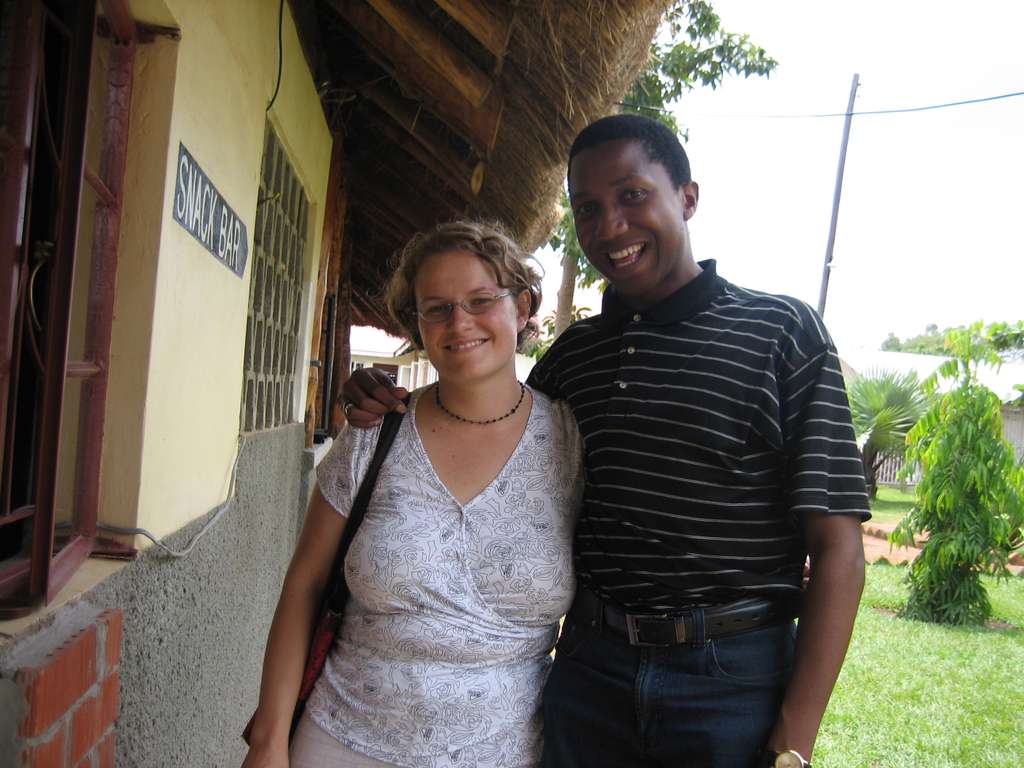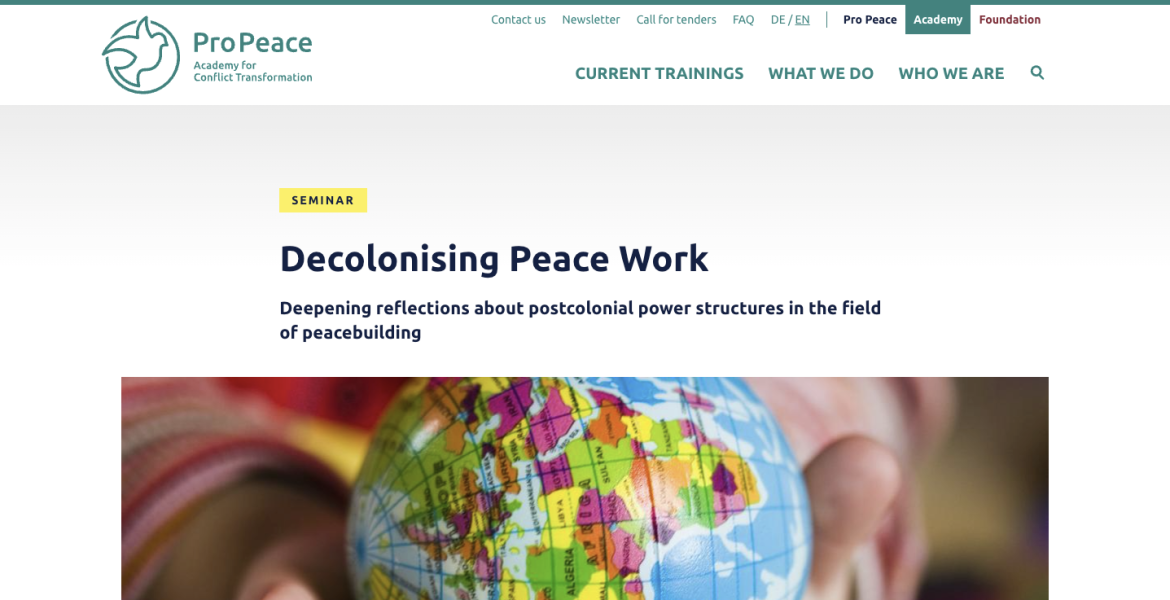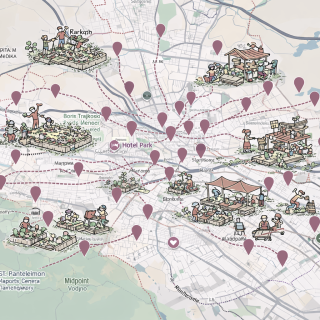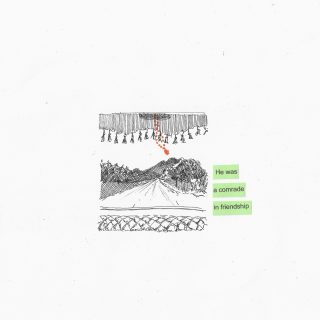The time has come for decolonised peace work. Here’s how.
We met in Kampala, Uganda, in 2006. Both of us had been assigned to Ugandan organizations as part of a wider coalition working toward a national reconciliation process after decades of civil war and insurgency. One of us from South Africa and the other from Germany, our partnership was born out of conversations on the different ways our respective countries — one marked by Apartheid, the other by the Holocaust — had approached the tortuous process of coming to terms with the past and the challenges of reconciliation.
Like many, we had been taught that peace work was universal, humanitarian and — above all — neutral. Over time, however, we became part of a global awakening to the ways unexamined neutrality can quietly protect the very systems that perpetuate inequality and violence. As we saw then — and continue to see today — many peacebuilding initiatives, however well-intentioned, operate within frameworks shaped by colonial histories and racial hierarchies. These legacies manifest in who gets to define peace, whose voices are heard, and whose suffering is acknowledged or forgotten.

Upon returning to our respective countries, we remained in contact, sustaining our shared reflections on anti‑racism, neo‑imperialism and the long‑term implications of colonialism. Over time, our focus narrowed to the need for a wider, more structured awareness of these realities within countries of the global North, whose disproportionate influence continues to shape how peace is understood and enacted. Coming from Africa, a continent hardest hit by colonialism, Moloko believed it imperative to center peace practitioners from formerly colonized countries. Through them, we sought to learn and teach how to confront colonial fault lines and their persistent impact — fault lines pressing hardest on the very people peace work seeks to uplift.
In 2010, Simone moved to the United States, where she grappled with police brutality against Black citizens, school segregation and everyday racism. This experience led her to question her own whiteness: the beginning of her anti-racist journey. Our conversations on shaping a peacebuilding sector free of coloniality turned toward the need to recognize the biases and privileges associated with whiteness. From there, we began to imagine ways to dismantle white colonial supremacy and foreground a global community that embraces humanity beyond the boundaries of color and race.
In 2022, Pro Peace’s Academy for Conflict Transformation published a call for applications to facilitate a training on colonial continuities in international peacebuilding. We eagerly put our reflections on paper, applied and won. Since then, we have facilitated multiple workshops with committed individuals across the peacebuilding and development cooperation sector. This article is but one of the many ripples born from this continued involvement.
Doing the work on ourselves, with others
What do we teach during our training? As with this article, we begin by explaining how we arrived here in the first place. Understanding history and the implications of colonial continuities in our lives is a crucial step toward recognizing that the world is structured to keep those in power in place.
After critically examining the social, economic, political and philosophical systems we have inherited, we invite participants to interrogate their own beliefs and intentions. Peace practitioners are encouraged to reflect on their motives, to identify the privilege and power they inhabit, to uncover implicit biases they may carry, and — most importantly — to remain open to the discomfort that comes with examining their personal story. Anti‑racism is an action word: an ongoing, uncomfortable practice to be honed over time rather than a single training event.
For this reason, the work is best sustained within a caring community of like‑minded practitioners. After completing the training, we invite participants to continue meeting with us and their colleagues through our Decolonise Peace platform, where they can discuss and reflect on their work, share successes and challenges, and offer one another courage and support.
Organizations must do the work too
Individual practitioners must do the work, but they do not act in a vacuum. International organizations engaged in peacebuilding, development, aid and humanitarian work need to be part of this effort as well. Most international institutions and organizations, unfortunately, continue to harbor colonial continuities, unknowingly perpetuating white supremacy in their day‑to‑day practices. As a result, they obstruct genuine organizational change. Most worryingly, because of this lack of awareness, they transfer colonial patterns onto their national partner organizations as well.
“White supremacy is a racist ideology that is based upon the belief that white people are superior in many ways to people of other races and that therefore, white people should be dominant over other races. White supremacy is not just an attitude or a way of thinking. It also extends to how systems and institutions are structured to uphold this white dominance.” — Layla Saad
Many organizations have diversified their teams and their language, but not their power structures. They speak of inclusion while maintaining centralized decision‑making and donor‑driven agendas, prioritizing the perspectives of those with wealth rather than those with need. The deeper work of transformation requires more than representation; it demands the equitable redistribution of power and resources between organizations in the Global North and the Global South.
Rooted in white supremacy, characteristics such as perfectionism, urgency and the insistence on one right way of doing things — to name a few — shape organizational climates where competition, individualism and unresolved conflict are condoned. Too often, these dynamics lead to frail partnerships between local organizations and their wealthier, more globally connected international counterparts. In this midst, peace workers who embrace a decolonial mindset feel isolated and exhausted by the constraints imposed by their organizations.
“Culture reflects the beliefs, values, norms, and standards of a group, a community, a town, a state, a nation. White supremacy culture is the widespread ideology baked into the beliefs, values, norms, and standards of our groups (many if not most of them), our communities, our towns, our states, our nation, teaching us both overtly and covertly that whiteness holds value, whiteness is value.” — Tema Okun
Meaningful change begins when organizations stop viewing decolonial practice as a risk — to be contained or spun — and start re‑imagining it as an opportunity for renewal. It calls for self‑effacement from those accustomed to dominance and confidence from those historically silenced.
A future reimagined
Looking ahead, decoloniality in the peacebuilding sector must look and feel profoundly different. It must be locally led and globally supported, rather than the other way around. Peace work should value local and Indigenous knowledge as much as academic expertise, trusting that those who live with the realities of conflict hold the wisdom to transform them. Funding models should move beyond control and compliance, grounding themselves instead in mutual trust and transparency.
In such a future, peace practitioners on the ground — like we were back in 2006 — would no longer see themselves as saviors, but as co‑creators of a shared world that belongs to all humanity. A world built and narrated by all, rather than by some on the basis of race, privilege or history. Partnerships between organizations would be rooted in equity and reciprocity. Monitoring and evaluation would shift from measuring impact alone to understanding relationships as well.
Admittedly, the path toward decolonized peacebuilding is bound to be challenging. Yet, it is necessary. As part of our community guidelines in training, we emphasize that this journey calls on us to slow down, to pause, to listen and to embrace discomfort.
Nowhere as strongly as in this endeavor are we reminded that the personal is political, and that transformation begins not (only) with policy but with a posture, one that shapes how we show up in spaces of dialogue, participate in decision‑making and act in solidarity. The lessons from practice are clear:
- Peace without justice is precarious: it will be broken.
- Inclusion without power‑sharing is hollow: it will perpetuate oppression.
- Transformation without self‑reflection is unattainable: conflict transformation is self‑transformation; peace work is self‑work.
Each time a participant in our training says, “I will do this work differently from now on,” we know we are one step closer to a liberated form of peacebuilding.
The time has come for decolonized peacebuilding
The current geopolitical landscape is undergoing a profound and destabilizing shift that directly affects peacebuilding. Rather than supporting locally grounded peacebuilding agendas, countries of the Global North are turning inward, prioritizing internal security and redirecting resources to domestic purposes. These pressures reveal a hard truth: peacebuilding — today as ever — is not simply about resolving conflict, but about navigating a world where global power politics undermine the very conditions required for sustainable peace.
We may be tempted to think that these times call for entirely new solutions, unheard before. In truth, what is new is not the vision, but the urgency. Today calls, more pressingly than ever, for the very reforms long recognized by activists and practitioners from the Global South — and their allies in the North.
These times call for breaking away from the patterns through which the Global North once operated, and has now withdrawn: a way of looking at peacebuilding through the lens of power rather than responsibility. It is time we recognize that peace cannot be imposed from the outside, nor tethered to it, nor defined by it; it must grow from and through conversant communities, lived histories, collective imagination and common purpose.
Lessons from our training experiences show that practitioners are ready for this shift. When peacebuilders move from conviction to curiosity, from competition to collaboration, transformation happens. The peace sector must stop avoiding politics and instead embrace its moral and professional duty: to stand for justice, to repair harm and to co‑create systems that honor human dignity. Only then can we build peace.
Feature image: Detail from the course page “Decolonising Peace Work,” a seminar delivered by the authors in 2024 through the Academy for Conflict Transformation / Pro Peace
Moloko Malakalaka (he/him) is a facilitator and consultant in strategic development, leadership, and peacebuilding based in Johannesburg, South Africa. Simone Dornbach (she/her) is a trainer, mediator, and adjunct assistant professor in conflict transformation based in New York City, USA. Working towards decolonising peacebuilding is one of their specialisations. You can contact them at decolonisepeace@gmail.com




